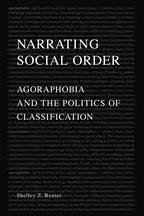
In Order to Learn
How the Sequence of Topics Influences Learning
Herausgeber: Ritter, Frank E.; Lehtinen, Erno; Nerb, Josef

PAYBACK Punkte
72 °P sammeln!
The order that material, for both facts and skills, is presented or explored by a learner can strongly influence what is learned, how fast performance increases, and sometimes, even that the material is learned at all. In this volume, the contributors argue that these effects are more pervasive and important than they have been treated. They explore some of the foundational topics in this area of intersection between psychology, machine learning, AI, cognitive modeling, education, and instructional design. They include case studies and present numerous questions that will lead to further resea...
The order that material, for both facts and skills, is presented or explored by a learner can strongly influence what is learned, how fast performance increases, and sometimes, even that the material is learned at all. In this volume, the contributors argue that these effects are more pervasive and important than they have been treated. They explore some of the foundational topics in this area of intersection between psychology, machine learning, AI, cognitive modeling, education, and instructional design. They include case studies and present numerous questions that will lead to further research projects and provide food for thought for professionals working in these disciplines.













